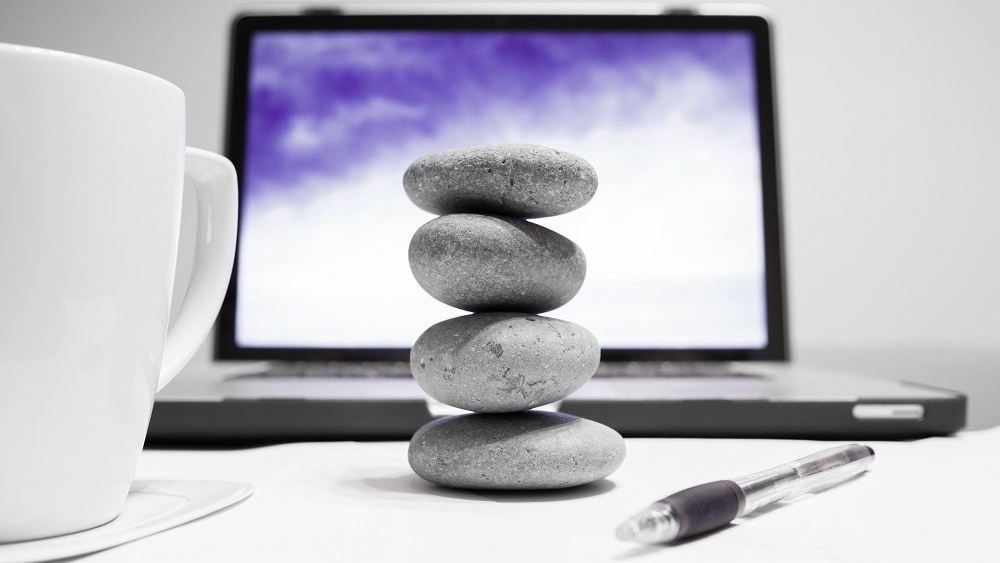Mental health and wellbeing is a subject that deserves attention. Worryingly, it is estimated that one in four people will experience a mental health problem in their lifetime (Business in the Community). Factors that can feel out of your control in the workplace can create stress, leading to a feeling of negativity and a lack of mental wellbeing both at work and at home.
But it is possible to take wellbeing into your own hands, here's how:
1. Get Talking
Evidence shows that people feel better about themselves when they have positive social relationships at work. Make an effort to talk to someone in person instead of sending them an email from time to time. Offer colleagues a cup of tea and ask them about their weekends. Being on friendly terms with fellow employees will help give both you and them a sense of wellbeing.
2. Take Active Breaks
Don’t be tempted to work through your lunch break. More time at your desk won’t necessarily make you more productive. Use your free time to do something positive, such as going for a walk or a swim. It’ll re-energise you for an afternoon back in the office.

3. Find strategies for stress
If you find your workplace stressful, identify the causes and try out some coping strategies. If your office is too noisy, put in some headphones and try listening to some calming music every now and again. If you’re constantly interrupted by others, plan your most intensive tasks for working from home days, or days when you can work in a quieter part of the office.
4. Look up the wellbeing strategy
Make yourself aware of your employer’s policies and available resources for health and wellbeing at work. You might find out about initiatives you weren’t previously aware of, or you might discover there are people outside your team you can speak to in confidence about your concerns.

5. Connect with colleagues
Feeling part of the workplace community does wonders for your feeling of positivity and achieving a work-life balance. Organise an activity you enjoy doing and invite your colleagues along – it could be a game of cricket in the local park or a lunchtime picnic in the sun.
6. Spruce up your environment
Sometimes it’s underlying factors that can make you feel stressed or anxious at work. Cast a critical eye over your desk and working environment more broadly to see what bothers you about it. Clearing away clutter and adding a photo or desk plant can bring an instant feeling of relief and connect you with nature, which is actually proven to help boost your mood!

7. Take hold of personal development goals
Learning is a fantastic way to increase self-esteem and improve a feeling of mental wellbeing. Put yourself forward for a training course you want to do – if you don’t ask, you won’t get. Even if work budgets are tight, you can still start your learning process through free online resources and webinars.
8. Change up your commute
Sometimes getting to work can be a cause of stress in itself. Look at other options for travelling that will have a more positive impact on both your mind and body. Consider cycling for part of the journey to kick-start your day with a burst of endorphins, or get off the bus a stop early to walk and clear your mind before arriving at work.

9. Mix up the routine
Sometimes having a routine that never changes can make you feel a bit down. As well as alternating some of your commuting habits and making the most of flexible working policies, see what else you can do to add something new to your day. It could be hot-desking with another team for a day or trying a new café for a lunchtime smoothie.
10. Find your social balance
Work can feel a lot less stressful when you have a great work-life balance. If you’ve been working too much and socialising too little lately, make an effort to change this. Organise to meet a friend for a meal after work, or start a new exercise class one or two nights a week. This will help you think about other things aside from work and feel generally more fulfilled.
Making wellbeing a focus in the workplace will help you feel happier – both at work and away from work. It’ll also help you feel more productive and in control of your workload. Take wellbeing into your own hands and you’ll be reaping the rewards in no time.






